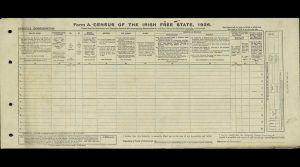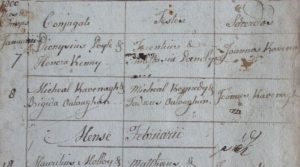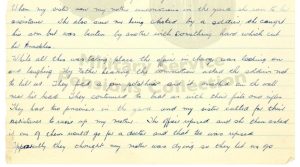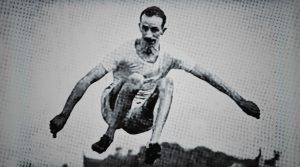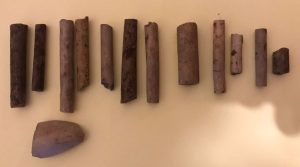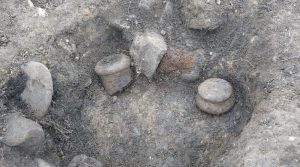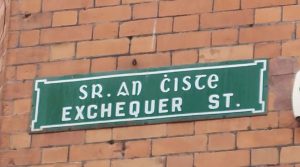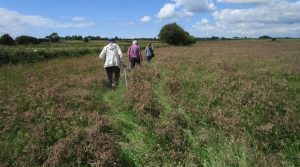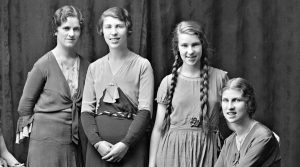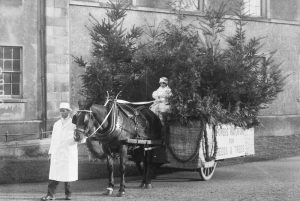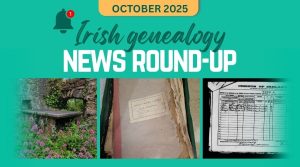School records can be a valuable resource for the Irish family history researcher. Our genealogy guide outlines the genealogical data meticulously documented within school records, such as registers and roll books, demonstrating their role in tracing ancestry. We also provide guidance on where to access old school records.
This guide focuses on historical records relating to Irish national schools and, to a lesser extent, other types of primary and post-primary schools. Using details extracted from these records, you can pinpoint the period during which your ancestor attended or left a particular school. Besides learning about their academic journey, these records offer glimpses into their daily lives and occasionally provide clues about their lives after leaving school. These records can also help track the movements of families.
A D V E R T I S E M E N T
School registers
School registers or clár leabhair are a precious source of information for genealogical researchers. Registers typically record the register number, school name, parish and county, as well as information on the registered pupils. The amount of information on each pupil varies, but most registers include the following:
- Pupil’s name;
- Pupil’s age / year of birth (sometimes the exact date);
- Pupil’s religious denomination;
- Pupil’s residence;
- Occupation of pupil’s parents / guardians (often just the father’s is stated);
- Class;
- Date of entrance to the school.
>
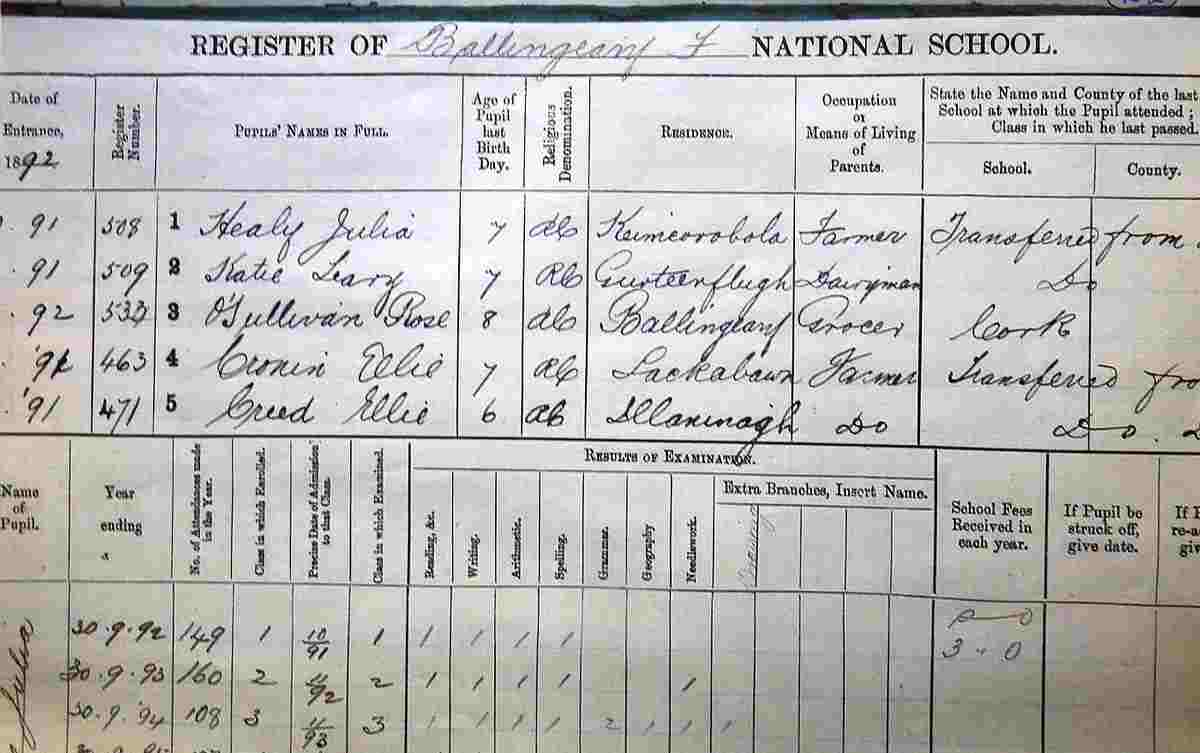
Information on previous schools attended and dates when the pupil left school or was readmitted, where applicable, is also usually included in the school registers, while some registers have an observations or comments column, which may give commentary on the pupil’s character and often provides an account of the pupil after they left school, including employment history, new addresses, emigration details and, in some unfortunate cases, information regarding premature deaths. These records can, therefore, help track the movement of individual students and sometimes their families too.
Some school registers document attendance, exam results, academic progress, class enrolment details and details concerning school fees. The tests sat frequently included a wide range of subjects, such as reading, spelling, writing, arithmetic, grammar, geography, needlework, agriculture and vocal music.
Sign up to our newsletter
School roll books
School roll books or leabhair rollaí list the attendance of named pupils. They typically include the following information on each pupil:
- Name;
- Year of birth (sometimes the exact date);
- Date when entering the class;
- Assigned school number or class number.
Other school records
Some school record collections also contain daily report books, examination rolls, salary books documenting payments to teachers and other staff members, district inspectors’ observation books, corporal punishment records, religious instruction certificates (Church of Ireland only), school committee accounts and lists of grants awarded.

What do I need to know before I carry out my search for school records?
Before searching for historical school records relating to your ancestor, it’s helpful to know the following:
- Pupil’s name (including any possible variants);
- Approximate date of attendance at school (based on date of birth);
- Rough location of school likely attended (parish, county, etc.).
A D V E R T I S E M E N T
The Commissioners for National Education, later known as the National Education Board, was established in 1831 to provide non-denominational education for the poor in Ireland. Although some schools kept records before this time, most surviving school records date to the latter half of the 1800s and later. Therefore, if your ancestor was a child in the early 1800s, it might be more productive to focus your efforts on searching for your ancestor in other types of genealogical records.
It’s also important to note that school records containing personal or sensitive information less than 100 years old are typically subject to access restrictions, while more routine administrative material is generally restricted for only 40 years. Therefore, the extent of the information available varies depending on when your ancestor attended school.
Please help support
Irish Heritage News
A small independent start-up in West Cork
Give as little as €2
Thank You
Where can I find old school records?
To begin, it should be acknowledged that some of Ireland’s school records have been lost or destroyed. It’s also important to note that no single institution houses all of Ireland’s surviving historical school records. The majority of original paper school records have been retained within the local community, often in the schools themselves.
Others have been deposited in local authority archives, libraries and heritage centres, as well as in the National Archives and National Library, both in Dublin and in the Public Record Office of Northern Ireland in Belfast.
A small portion of Ireland’s historical school records has been digitized, but no single website provides access to all of the digitized records. In some cases, only images of the original documents are available online, making searching difficult, while in other instances, only partial transcripts of details extracted from the documents are available. However, in some cases, both images of the original documents and transcripts of key details are provided, making the research process much easier and more fulfilling.
In terms of online access, there is considerable overlap between the national school register records on FamilySearch, FindMyPast and Ancestry, with the majority of these particular registers housed in the National Archives of Ireland.
A F F I L I A T E A D

The school records held in various repositories throughout Ireland, as well as the online digitized records, feature a huge number of small schools, some of which served dwindling faith groups and many of which closed years ago. These records reflect a diverse mix of religions and backgrounds.
Below, we provide specifics on accessing various major school record collections and record sets, including websites offering free or paid online access to digitized records and “on-site” (paper and microfilm) collections in libraries and archives.
– FamilySearch (online, free)
FamilySearch.org offers the option to search and view for free a large number of national school registers, ranging in date from 1847 to 1954, from well over 200 schools located in 25 counties throughout the Republic of Ireland. Co. Carlow schools are not featured in this record set and Co. Laois is listed as “Leix”. For a full list of all the schools and registers featured in this record set, visit the FamilySearch site here, where you can browse the individual register books, page by page, following a few simple clicks.
FamilySearch provides high-quality digitized microfilmed images of the original documents, the key details of which have been transcribed and indexed, making it very easy to conduct searches for your ancestor. You can search the index of national school registers here by name, place and year, as well as other options.
A D V E R T I S E M E N T
To view the school records, you must have an account with FamilySearch but accounts are free to set up. You must also be logged in to your account (FamilySearch may periodically log you out, so you might need to log back in from time to time). Always consult the images when reviewing the results of your searches as they contain more information than the transcripts.
FamilySearch has a separate record set for high-quality digitized microfilmed images of national school registers from around 200 schools in the six counties of Northern Ireland, ranging in date from 1850 to 1950. For a complete list of all the schools and registers featured in this record set, visit the FamilySearch site here, but note that viewing restrictions currently apply to these records from Northern Ireland. These particular registers, as well as microfilmed copies, are housed in PRONI (find out more about the PRONI collection below).
– FindMyPast.ie (online, €)
On the subscription website FindMyPast.ie, you can search and view national school registers, ranging in date from 1860 to 1922, from hundreds of schools across 24 counties in the Republic of Ireland. Schools in Counties Carlow and Westmeath do not feature. For a full list of all the schools and registers featured in this record set, visit the FindMyPast site here.
A F F I L I A T E A D

FindMyPast provides high-quality digitized images of the original documents, the key details of which have been transcribed and indexed, making it very easy to search for your ancestor. You can search the FindMyPast national school register records here by pupil’s name, year, religion, school, parish, county and other search options.
Although registers deriving from several schools in Counties Dublin and Wicklow feature in this record set, other schools located in these two counties appear in different record sets on the FindMyPast website and must be searched separately. We cover this in detail in our guide to Co. Wicklow’s historical school records here and it will be discussed in a future guide for Co. Dublin.
>>> RELATED: A guide to Co. Wicklow’s historical school registers, roll books and other school records
In addition, FindMyPast.ie features Society of Friends (Quaker) school records, registers and lists from Ireland, spanning the late 1700s to early 1900s. Seven Quaker schools are currently represented in this record set. The original records are held by the Religious Society of Friends in Ireland Archives and the Ulster Friends Trustees Ltd. Again, images of the original documents and transcripts are available on FindMyPast for each entry in the record books. You can search by name, admission year, school, meeting house and other search options here.
A F F I L I A T E A D

You must be signed in to your account and have an active subscription with FindMyPast to view the results of your searches for all Irish school records. Always consult the images when reviewing the results as they contain more information than the transcripts.
– Ancestry (online, €)
On the subscription website Ancestry, you can search and view national school registers, ranging in date from 1847 to 1933, from 25 counties in the Republic of Ireland. Co. Carlow schools are not featured in this record set and Co. Laois is incorrectly listed under “Offaly (Queen’s)”.
Ancestry provides high-quality digitized microfilmed images of the original documents, the key details of which have been transcribed and indexed, making it very easy to search for your ancestor. You can search the Ancestry national school register records here by pupil’s name, birth, residence, admission date and other search options. Particularly handy is the option to browse the individual register books, page by page.
Although several schools in Co. Clare feature in this record set, other schools located in the county appear in a different record set on Ancestry and must be searched separately. We cover this in detail in our guide to Co. Clare’s historical school records here.
>>> RELATED: A guide to Co. Clare’s historical school registers, roll books and other school records
You must be signed in to your account and have an active subscription with Ancestry.co.uk or Ancestry.com to view the results of your searches for all Irish school records on Ancestry. Always consult the images when reviewing the results as they contain more information than the transcripts.
– National Library (mix of online & on-site, free)
The National Library of Ireland, located on Kildare Street in Dublin 2, holds various original paper school records in its collections, including registers, roll books, pupils’ reports, school prospectuses, school committee books and account books. Some of these have been digitized, and you can find them by searching the library catalogue here. Most records are not transcribed or indexed, so searching for a particular individual mentioned in these records can take time.
Their collections feature some remarkable records, including school reports from Pádraig Pearse’s St Enda’s School and documents related to school fees and other expenses paid by the Irish National Aid and Volunteers’ Dependents Fund, which reveal that many of the pupils’ fathers were killed in action, executed or interned.
– National Archives (on-site)
The National Archives of Ireland, located on Bishop Street in Dublin 8, houses a substantial collection of 19th- and 20th-century original paper national school registers, roll books and other school records.
A D V E R T I S E M E N T
The largest collection in the Republic of Ireland, the National Archives currently holds records for over 200 schools across much of Ireland, with schools in Dublin and Donegal particularly well represented. They received some of these records from the Department of Education (a list of these schools is available here), while others were received through private accessions, usually from the individual schools (a list of these schools is available here).
The registers and roll books cover widely different date ranges, with the earliest records dating back to the 1840s and the most recent from the 1980s. Depending on the date, it’s possible to request to view a school register or roll book at the National Archives.
Remember: most of the school records available to view on the FamilySearch, FindMyPast and Ancestry websites derive from the National Archives collections. When searching for school records under 100 years old on these sites, results typically include only partial information extracted from the records and you will probably not have permission to view images of the original records. In such cases, note the register or roll number and submit a request to view the original record at the National Archives.
A F F I L I A T E. A D

Many interesting schools feature in the National Archives collections, such as hospital schools and very small schools that were forced to close due to dwindling numbers of pupils, like the school on Great Blasket Island. At one stage, as many as 60 children attended the school, but only three children were attending when it closed in 1941. Just 12 years later, the island was evacuated.
You can learn more about the school records held by the National Archives here or find out how to prepare for your visit here.
– Public Record Office of Northern Ireland (on-site)
The original paper records for over 1,500 national schools in Northern Ireland, mainly dating from the 1860s to the 1940s, are accessible on-site in the Reading Room of the Public Record Office of Northern Ireland (PRONI) on Titanic Boulevard in Belfast city.
PRONI has produced an index for its school collections, which includes the names of the schools, arranged by parish, alternative names for schools where applicable, the county in which they are situated, PRONI collection reference number (all beginning with prefix SCH), along with additional notes if part of a collection is held elsewhere, for example on microfilm. This index makes it easy to establish which particular schools operated within any parish in Northern Ireland. You can access the PRONI school records index here.
A D V E R T I S E M E N T
Learn how to plan your visit to PRONI here.
– Irish Jesuit Archives (on-site)
Original paper records pertaining to a number of primary schools, secondary schools and colleges operated by the Jesuits (Society of Jesus) in various locations throughout Ireland are housed in the Irish Jesuit Archives on Leeson Street Lower, St Kevin’s, in Dublin 2. This includes registers and roll books. None of the documents have been digitized, but you can search their catalogue here. Email archivessj@gmail.com with any archival queries or to make an appointment to view the records.
– Religious Society of Friends in Ireland Archives (on-site)
The Friends Historical Library, located in Quaker House on Stocking Lane in Dublin 16, holds various original paper school records from Society of Friends (Quaker) schools throughout Ireland. Some original records may also be held in the Lisburn Meeting House, Co. Antrim.
Many of these records have been digitized and images of the original documents and transcripts are available on FindMyPast. For further information, you can contact the Historical Library Dublin by emailing library@quakers.ie.
>>> READ MORE: A guide to navigating Northern Ireland’s church records
A D V E R T I S E M E N T
– Local collections (mix of online & on-site)
Remember that most original paper school records are kept within the local community, often in the schools. First, contact the school or board of management directly to verify whether the old records are in their possession. Even if a school has permanently closed, another school in the area or a new school may have taken custody of the old records.
If the school cannot confirm the whereabouts of the records, then it’s time to reach out to the local historical society or heritage centre, or even a local historian or a retired headmaster or principal, to help locate them.
Some school records have been deposited in archives and libraries run by local authorities (the county councils and city councils). Access to these records is usually by appointment only. Some archives have begun digitizing their records and making them accessible online for free. The county collections will be discussed in detail in future guides for the individual counties.
Some counties do not have a dedicated archive and in these instances, you should contact the National Archives in Dublin, which holds national school records for some local authorities.
A D V E R T I S E M E N T
Our search tips
- Start your search online and prioritize websites that have indexed and transcribed their records for easier searching. However, keep in mind that errors in transcripts are possible, so always consult the images of the original records.
- If you’re having difficulty finding your ancestor in the school records, try searching by surname only or try alternative name spellings. Since many school records after 1922 (the founding of the Irish Free State) were completed in the Irish language using old Gaelic script, your ancestor’s name may be recorded in its Irish form (e.g., John could be recorded as Seán or Eoghan).
- In mixed schools with both boys and girls, check all available records as we have found instances where pupils were mistakenly recorded in the wrong registers (i.e. girls appearing in the boys’ registers and boys in the girls’ registers).
- If your ancestor lived near the boundary of a parish or county, you may need to broaden your search to include all possible schools in the wider region.
- Knowing your ancestor’s religion may help determine which school they attended. While efforts were made to provide non-denominational education from 1831, most schools were run by a single denominational board by the mid-19th century. If your ancestor belonged to a minority faith, they may have travelled further to school. Wealthier children may have even attended boarding schools some distance away.
- Avoid making your search by date/year too narrow as children in the past could start their schooling at a younger or older age compared with today. Bear in mind also that attendance was often sporadic. Education only became compulsory for children aged 6 to 14 in 1892. Even after this, many poorer children had to leave school early to support their families. In rural Ireland, older boys were often kept at home to help on the family farm, while older girls were frequently kept at home to care for younger siblings or elderly family members. Likewise, in working-class areas in the cities, it was common for children to leave school early to sell wares on the streets or to beg.
- If the records for the school your ancestor attended are not online and are not housed in the National Archives, it’s time to start searching on a more local level.
- If you get the opportunity to handle original paper school records, you should be aware that many volumes are in very poor physical condition and should be treated with the utmost care.
>

Other related collections
If you’ve exhausted all of our tips and still can’t find your ancestor in the school records, it’s possible the records relating to your ancestor’s school may have been lost or destroyed. Unfortunately, many Irish school records – such as those for Baltimore Fisheries School (later to become Baltimore Industrial School) in West Cork, which operated from 1886 until 1950 – have met this fate.
Setting aside traditional school records, like registers and roll books, there is still a chance that your ancestor might appear in a related collection.
– Poor Law Union records (mix of online & on-site)
If you suspect that your ancestor may have lived for a time in a workhouse during their childhood, it’s likely that they attended the workhouse school. In such cases, your ancestor might appear in poor law union records. Many of the surviving records have been deposited in local authority archives and some have been digitized. Explore our detailed guide to workhouse records here.
>>> RELATED: Did your ancestor spend time in a workhouse?
– Schools’ Folklore Collection (online, free)
If your ancestor lived less than 100 years ago, you are at a disadvantage in terms of how much information can be obtained via the redacted school records. However, if your ancestor attended school in the late 1930s, they could feature in the Schools’ Collection, which was organized by the Irish Folklore Commission. While these are not strictly school records, this collection can be invaluable for the genealogical researcher.
Between 1937 and 1939, over 50,000 pupils from 5,000 primary schools across the 26 counties of the Irish Free State compiled approximately 740,000 pages of folklore. This large collection, written in the students’ own handwriting, contains local stories, oral histories, traditions, legends, riddles, proverbs and more, often sourced from their parents and grandparents. Therefore, it offers insights into previous generations as well and sheds light on their beliefs and customs. In terms of raw genealogical data, each story collected notes the student’s name, address, school and teacher, as well as details regarding the informants (such as name, age and address).
The entire collection has been digitized, with a significant portion transcribed. You can search the collection on the Dúchas site here.
A D V E R T I S E M E N T
– Photograph collections (mix of online & on-site)
Many local authority library and archive collections contain large numbers of old photos depicting schools, classes of students, random groups of students and school trips. Some have been digitized and can be viewed online, but the students are typically not named.
What next?
If you were lucky enough to find your ancestor in the school records, analyse the information carefully to see if it holds additional clues for locating other records related to them or their family. After extracting the genealogical data from the school records, you can cross-check this information with civil records, church records, valuation records, census records and other sources.
If you know of other Irish school record collections, please let us know in the comments below.
Advertising Disclaimer: This article contains affiliate links. Irish Heritage News is an affiliate of FindMyPast. We may earn commissions from qualifying purchases – this does not affect the amount you pay for your purchase.
READ NOW
➤ Understanding marriage settlements for Irish family history research
➤ A genealogist’s guide to DNA testing for Irish family history research
➤ A guide to navigating Northern Ireland’s church records
➤ How Irish is Kamala Harris? US vice president’s Irish roots explained
A D V E R T I S E M E N T


